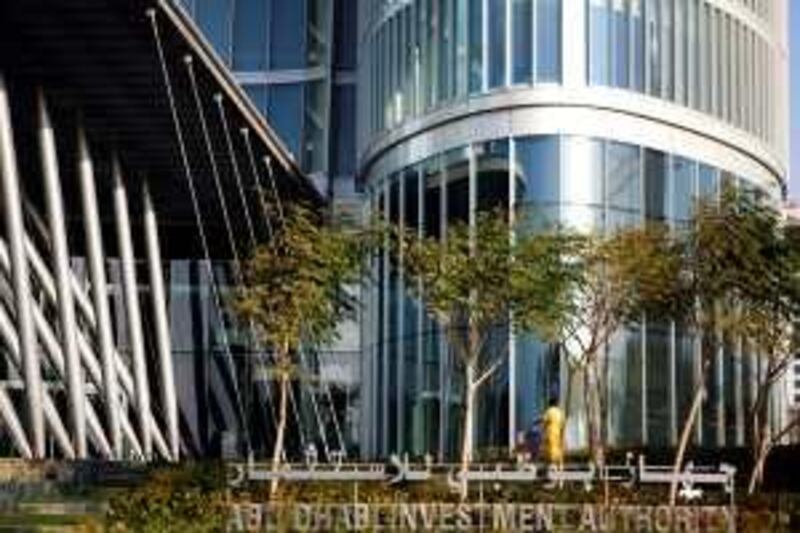The Abu Dhabi Investment Authority (ADIA), the country's largest sovereign wealth fund, is to convert bonds it holds in Citigroup into shares at more than seven times their current value. The deal, which will come in four stages beginning in March, is the result of a two-year-old agreement between ADIA and Citi that was designed to inject new capital into the US bank, which was then facing liquidity problems.
Under the original agreement, ADIA would have been left with a 4.9 per cent shareholding in Citi, but this has since been diluted by the US government, which took a 36 per cent share in the bank earlier this year, and other investors. When the deal is completed, ADIA will also have received nearly US$3 billion (Dh11.01bn) from the special dividend Citi agreed to pay in 2007 in return for its original $7.5bn investment. ADIA will receive the last of its shares in September 2011.
ADIA declined to comment yesterday, but a banker based in Dubai who declined to be named said: "It looked a good deal at the time but markets moved against them [ADIA]. Who knows, they might move back in their favour." At the time of the deal, Citi was coming under pressure on global financial markets because of perceived weakness in its levels of capital adequacy. ADIA agreed to inject $7.5bn into the bank through a convertible bond paying an 11 per cent dividend, significantly above money market rates at the time, but with a commitment to convert the bond at $31.83 a share. Citi shares closed at $4.06 on Friday.
Since the deal was announced in November 2007, Citi has been one of the US banks hit especially hard by the credit crisis. This year, as part of the US government's bailout of stressed financial institutions, the federal authorities took its equity holding in Citi in exchange for $25bn of government financial aid. Reports of ADIA's obligation to buy the shares were triggered by an announcement last week from Citi that it was to issue bonds at a much lower interest rate of 6 per cent.
Under the 2007 agreement Citigroup has to issue bonds and use the proceeds to buy its own stock to hand over to ADIA. In 2007, the deal was regarded as sensitive because of the debate over the growing influence of sovereign wealth funds in the US. ADIA and Citi structured it in such a way as to avoid breaching a final equity holding of 5 per cent in the American bank. This level would have opened up the possibility of review by the Federal Reserve into evidence of executive influence by ADIA.
Citi then welcomed the investment "from one of the world's leading and most sophisticated equity investors", which it said would enable it to take advantage of growth opportunities. ADIA said: "This investment reflects our confidence in Citi's ability to build shareholder value." ADIA was subsequently offered a board seat by Citi but declined to take it in line with its "arm's length" philosophy of investment.
There is little possibility that the terms of the ADIA deal will be changed to reflect market fluctuation since it was struck. GIC, the Singaporean sovereign wealth fund that also invested in Citi, accepted a lower dividend of about 7 per cent but left open the option to convert preferred shares into Citi ordinary shares at any time. Because conversion was not mandatory, GIC was able to renegotiate those terms with the US bank and with the blessing of the US authorities.
In September, GIC made a $1.6bn profit from the sale of Citi shares after it converted preferred shares to ordinary equity. Since the credit crisis last year, the debate over Gulf sovereign wealth funds has become largely redundant, with several high-profile western institutions seeking and gaining investment funds from Middle East countries including Abu Dhabi and Qatar. In June, another Abu Dhabi company, the International Petroleum Investment Company, made a profit of about $2bn on shares it bought in October last year to help Barclays avoid having to take aid from the British government.
fkane@thenational.ae






